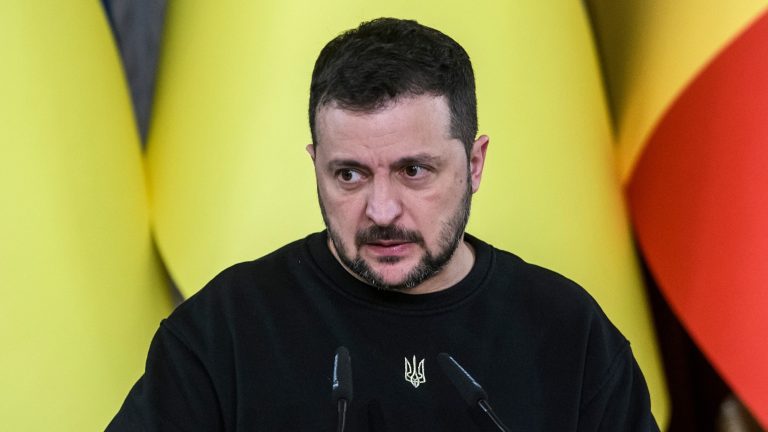Glapiński announced the end of inflation. Why didn't the Monetary Policy Council lower rates anyway?

We finally have it! We are probably on an inflation target! – said Adam Glapiński at the beginning of the press conference. He then explained why, despite this good result, the Monetary Policy Council did not lower interest rates.
The traditional celebration of the President of the National Bank of Poland, Adam Glapiński, has ended. He explained the reasons why the March meeting of the Monetary Policy Council ended with the decision to leave interest rates at the current level.
Glapiński: inflation is over
Glapiński began the conference by praising himself: he pointed out that when journalists predicted an increase in inflation, the institution he represented rightly predicted that prices would start to fall.
– One would like to start with some gesture of joy, a long-awaited and exhausted success. We finally have it! We are probably on an inflation target! – said the head of the National Bank of Poland.
Immediately after that, he added that there are no official data for February yet (in January, inflation was 3.9% year-on-year, the broad NBP inflation target is 1.5-3.5%), but everything indicates that in February, inflation dropped to around 3%. In his opinion, the role of the central bank plays an important role in this.
– How many criticisms did the NBP have to listen to, how many cabarets were constructed based on our projections? So what? In the end, it turned out that the National Bank of Poland was right and the rest of the media was wrong. Bitter satisfaction, but all Poles want the same thing. Colloquially, we can say that we do not have inflation now, he said.
Why didn't the Monetary Policy Council lower interest rates?
Glapiński admitted that everyone is probably wondering why the Council did not lower rates in the face of falling inflation. He explained that Council members suspect that prices will start to rise again in the second half of the year, which will not be the result of monetary policy, but of the abolition of zero VAT on some food products. The zero rate has been in force since the beginning of 2022 and has been consistently extended. However, it is known that it cannot be maintained indefinitely, as it burdens the state budget.
– This uncertainty (regarding inflation – ed.) causes us to keep interest rates at the current level – explained Glapiński.
According to the economic model adopted by the National Bank of Poland, the return of VAT to 5%. will mean an increase in the inflation level by 0.9 percentage points. He admitted that there are also other models, therefore some banks forecast an increase in inflation (due to the abolition of the zero VAT rate alone) by 1.2%.
According to Glapiński, a greater danger for inflation in 2024 will be the partial and gradual abolition of the shield covering electricity, gas and district heating. The government has not yet announced a timetable for abandoning it, but the Minister of Climate promised that she would ensure that there is no “shock” price increase. She also announced that protection will continue to be provided for farms requiring assistance, i.e. those that will not be able to cope with market prices of energy, gas and central heating. It is conservative to estimate that their prices will increase by 30% this year. compared to currently paid bills.
Glapiński admitted that in the absence of specific details, central bank analysts are unable to determine the impact of abandoning this element of the so-called solidarity shield against inflation.
According to the National Bank of Poland, extreme scenarios include inflation between 3 and 8 percent. in the second half of the year – if the government withdraws completely from both solutions or extends both solutions without changes.
– This explains why we keep interest rates so high. Inflation may increase to a maximum of 8%, but it can also be, for example, 6, 5 or 4%. We must be prepared to suppress the inflation target again. We choose conservative common sense and stick to those rates that provide stability, he continued.
And in his own style, he added that “inflation is lurking around the corner.” – We do not take away the medicine from a patient who has stopped having a fever for a while, but there is a risk that it will start again
Glapiński on entering the euro zone
During previous conferences, we learned that President Glapiński is against Poland's entry into the euro zone in at least the next eight years. He recalled that nothing had changed in his position.
– I advise those who want to discuss the introduction of the euro by force in Poland, even at the expense of removing the president of the National Bank of Poland, to think twice, because such a discussion will make sense in a few years when we will be at the level of today's Great Britain. Previously, it was an act to the detriment of Poland, because it means that our growth rate will be reduced and we will remain a peripheral country for a long time – he said.
The President of the National Bank of Poland about his earnings
Glapiński also decided, as he put it, to debunk several myths about the National Bank of Poland. He argued that it cannot be said that the central bank prints money, and that at most commercial banks do it, although not literally. He also commented on allegations that appear from time to time that he earns a lot. He emphasized that his earnings are public and he does not have a single zloty more than indicated in official documents.
– If we calculate the president's annual earnings, the total of all titles, apart from the university, and converted into the average salary in the country, it is probably the lowest in the history of all presidents. My salary is approximately the same as prof. Marek Melka. Hanna Gronkiewicz-Waltz had the highest salary in relation to the average salary. Even Leszek Balcerowicz, who keeps accusing me of my salary, had more, he said.
He immediately assured that he had no intention of accusing his predecessors of their earnings because he respected them.






